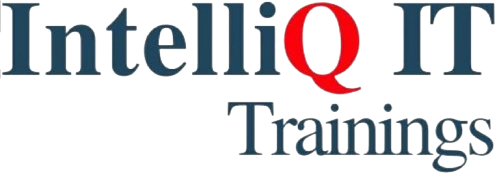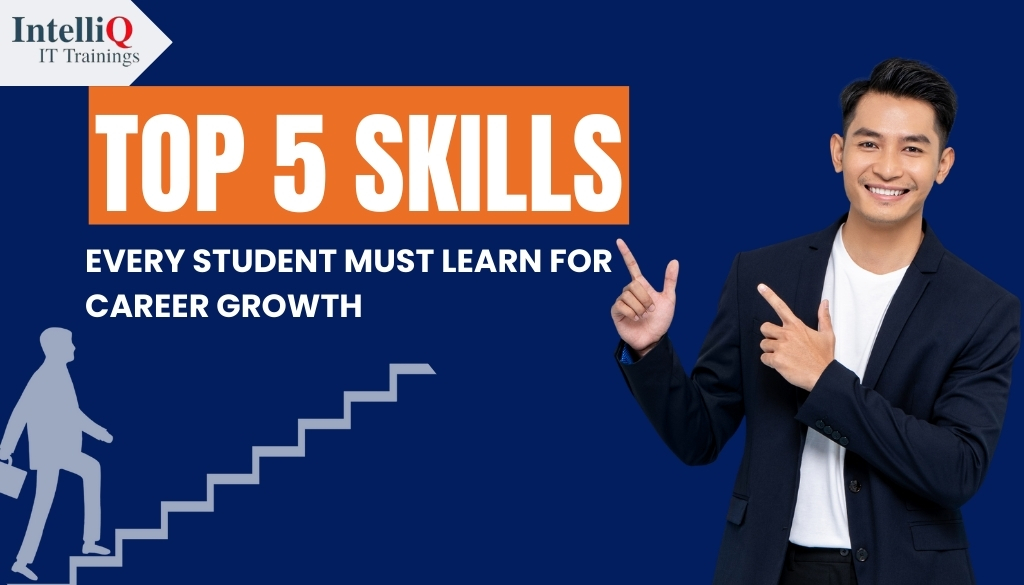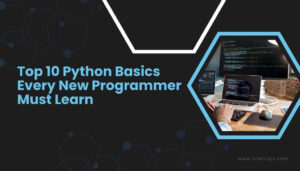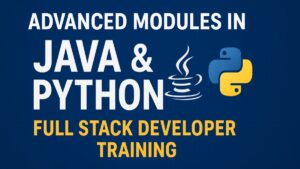Table of Contents
Introduction
- Importance of acquiring emerging skills
- How the job market is evolving
Digital Literacy & Tech Savviness
- Basics of digital tools and online platforms
- Importance in modern workplaces
Data Analysis & Critical Thinking
- Understanding data-driven decisions
- Building problem-solving ability
Interaction and Teamwork
- Effective verbal and written communication
- Teamwork in global and remote environments
Flexibility and Regular Learning
- Embracing change and new technologies
- Importance of upskilling and reskilling
Creativity & Innovation
- Thinking outside the box
- Applying creativity to real-world challenges
Conclusion
- Summary of key skills
- Encouragement for students to start building them today
Introduction:
In the modern world, every time is most important, learning new competencies is more important than ever before among learners who want to pursue successful careers. The five new skills that accompany digital literacy and are needed to achieve success in the changing environment are data analysis and critical thinking, communication and collaboration, adaptability and lifelong learning, and creativity and innovation.
Digital literacy will also help the students to know how the more recent tools should be used, and data analysis skills will also help to develop problem-solving ability and critical thinking skills will also develop. People work in remote and global teams with confidence because communication and collaboration allow it. Students who think that the reason why they will be changed, upskilled and reskilled is lifelong learning and flexibility will counter the changes that will occur in the industries. Finally, but most importantly, creativity and innovation aid students to think beyond the box, and they aid them to create solutions to issues that are present in the real world.
Jobs are dynamic, and the majority of the jobs that people are doing are being transformed or even replaced by technology. Jobs in fields like artificial intelligence, cloud computing, digital marketing, and data science are becoming available at a rapid pace, and skill development and education are the responsibility of the professional. By adopting new skills early on, a student is likely to remain on the curve, have a better chance of getting a job, and compete effectively in a professional setting.
Eventually, the skill to adapt and continue learning and acquire a relevant skill is becoming a choice it is not optional anymore, and students who want to prosper in the future of work need it.
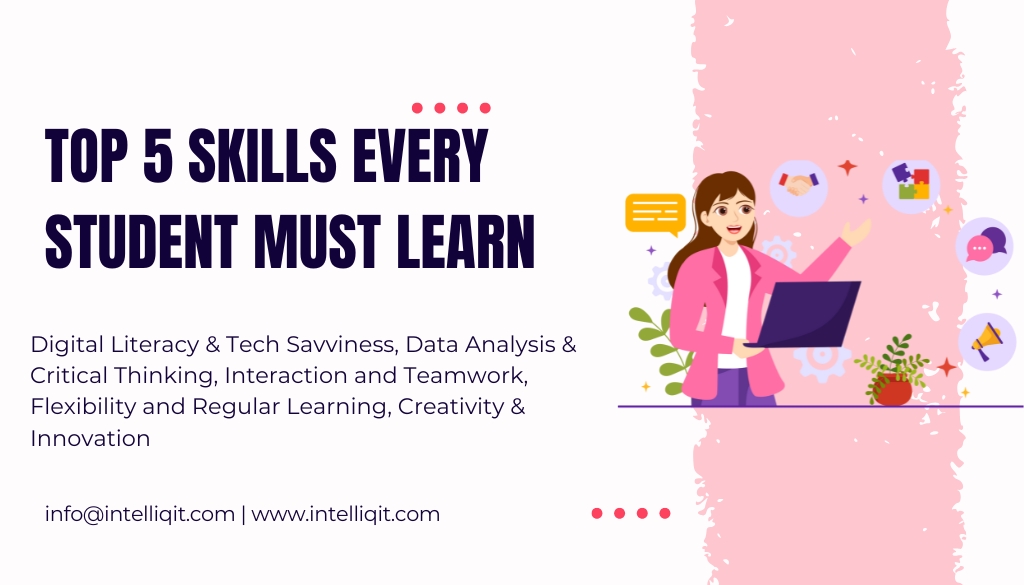
Digital Literacy & Tech Savviness:
The Digital literacy and tech savviness are now qualifications that the future profession of a student must have. Digital literacy has been described as the ability to use digital resources, computer applications and even the Internet to effectively use it when understanding, analyzing, as well as communicating information. Technologically oriented students can learn to operate computers, smartphones, cloud computing and collaborative technology quickly, and this can assist them to excel in learning and working conditions.
The first is to master the digital tools, including Word processors, spreadsheets, presentation software, and productivity applications. In addition to that, one needs to be familiar with the online tools, such as online learning management systems, online project management tools and online communication applications. The work with these tools will help the students to cooperate with others, to organize work, and to find new learning resources.
Digital literacy is not optional in current workplaces. Employers desire employees to acquire new software within a short time, analyze data, and have the capacity to communicate using digital platforms. Online studies and the application of technology in pursuing answers and becoming creative are other aspects that such technological learners also adapt themselves to the current trends. Technology skills and digital literacy acquired at young age can put students in a better position to become more strategic, employable and better equipped to meet the demands of a professional world that is more technologically driven.
Data Analysis & Critical Thinking:
Data analysis and critical thinking have become very important in developing effective decisions in the digital age. Companies use evidence-based research to detect trends, estimate results, and enhance the general performance. Learning to interpret data is not only beneficial in making well-informed decisions, but minimizes risks and contributes to efficiency.
The most important part of data analysis is the capacity to address raw figures into something significant. This is undone by critical thinking where it challenges assumptions, justifies findings and makes sure that rational decisions are made instead of guesses. The combination gives individuals and businesses the ability to consider different perspectives before making a decision.
Development of problem-solving skill with data analysis should be organized in several steps: problem identification and finding information, deriving patterns and critical thinking to find the optimal solution. Such a process promotes innovation without causing many mistakes.
In business, in healthcare, in education, in technology, the combination of data and critical thinking has now become an important skill set. Individuals who develop such skills are capable of adapting to the challenges and predicting the future trends as well as influencing policies on a strategic level. The bottom line, in mastering data analysis and critical thinking is turning the information into intelligent, actionable decisions that lead to success.
Interaction and Teamwork:
We are living in a globalized world where skills in communication and cooperation are very important to help students perform well both in school and at work. Good communication does not just involve talking or writing but entails clear expression of oneself, listening and adapting to various messages of listeners and readers. Students who master verbal and written forms of communication are able to communicate with great confidence, take part in discussions and build good relationships with other students, tutors, and even their future employers.
Success in education and the workplace requires communication skills, which involve the use of email skills, how to write reports, and how to create professional presentations. Verbal communication, in its turn, assists students in expressing ideas when working in groups, during interviews and presentations. Together, these competencies would ensure that messages are received properly and that stronger bonds are built.
Teamwork has also taken on a certain sense of urgency in the contemporary globalized and remote working world. Teamwork also assists the students to know how to be effective when they are working with other groups, to resolve conflicts, and to share and utilize the strengths of different people to achieve a common goal. They have proven themselves to be effective in collaboration technology (e.g., project management software, video conferencing applications, and cloud document sharing, etc.), which is another characteristic that enhances their ability to work in modern, geographically spread teams.
Flexibility and Regular Learning:
This new dynamic world has led to the idea that flexible education and continuous education have become relevant to students who desire a career in the future. Professional development involves the ability to respond to a changing work environment, embrace new technology, and embrace change. Adaptable students are better equipped to meet challenges, opportunities, and thrive in unpredictable situations.
The skill needs of the current generation would be outmoded by the upcoming generation as the technology changes and the industry needs change. Change is related to the willingness to learn new tools, to apply new methods and be flexible in finding solutions. Adaptive students can learn to adapt to various situations and work in different teams promptly and handle various unexpected problems.
Flexibility is accompanied by lifelong learning. Other benefits of upskilling and reskilling are that students can acquire new skills, enhance their knowledge and remain up to date with the competition in the labor market. A great opportunity to acquire new skills and be in line with the rapid and modern industries are online courses, certification, workshops and self-directed learning.
Employers have been putting significant focus on people with a growth mindset and willing to learn and develop in new jobs and technologies. This lifetime learning/pliability not only increases the likelihood that the students will be left with a job but also makes the students confident about this. This has the added benefit of being able to leave the students in such unfriendly working environments.
Finally, learners who can embrace change and focus on life-long learning will be in a winning position over time since they will be in a position to work in a rapidly changing work environment.
Creativity & Innovation:
One of the most valuable skills that a student can acquire to compete in the present-day competitive environment is creativity and innovation. Creativity is the capability to think outside the box, innovate ideas, and see issues from new perspectives. Innovation takes it a notch higher and applies the open-mindedness to develop solutions to actual challenges. These sets of skills will help the students to work and contribute in any school or workplace.
The ability to think outside the box encourages students to move beyond the conventional method of thinking and to open up to new avenues of possibilities. Creativity is the fuel of originality and development, whether it be generating a creative project, coming up with an alternate solution to a problem or selling an idea. It is a form of development that compels students to challenge assumptions, risk and imagine.
The focus on implementing these creative thoughts into real-life situations is called innovation. Innovation plays a crucial role in transforming the industry, whether it is by streamlining processes or coming up with new products or services. Employers are seeking individuals who can generate ideas and put them to good use to achieve outcomes.
Creativity and innovation are valued differentiators in a technologically changing era. Students who learn these skills can deal with change, solve difficult problems and make important contributions in any field. With a spirit of inquisitiveness, exploring and inventing, students will become innovative leaders of tomorrow.
Conclusion:
Since the job market is dynamic, students must prepare themselves to adopt the right skills to survive in the market and be market-ready. The five new skills listed in digital literacy that are required to be successful in a changing environment are data analysis and critical thinking, communication and collaboration, adaptability and lifelong learning, and creativity and innovation.
Digital literacy will also help the students know how to use newer tools, and data analysis skills will help in improving problem-solving ability, too and critical thinking skills will also be improved. Communication and collaboration enable people to work in global and remote teams with confidence. Students who feel that it is through lifelong learning and flexibility that they are changed, upskilled, and reskilled will counter the changes in the industries. Last but not least, creativity and innovation help students to think outside the box, and they help them to generate solutions to problems that exist in the real world.
This is a part of skills that one should constantly evolve. Early starters in them will be more confident and able to access more opportunities and be more competitive in job markets. The sooner the students invest in themselves, the better they are able to live in the rapidly changing world of employment.
We know future-ready skills are important at IntelliQ IT Training. This is why we offer industry-specific programs like AWS DevOps, Java full stack, and Azure multi-cloud that enable learners to master technical knowledge and develop other crucial career skills. Students will develop a rightful place in the digital age and become leaders with the proper training and direction.
